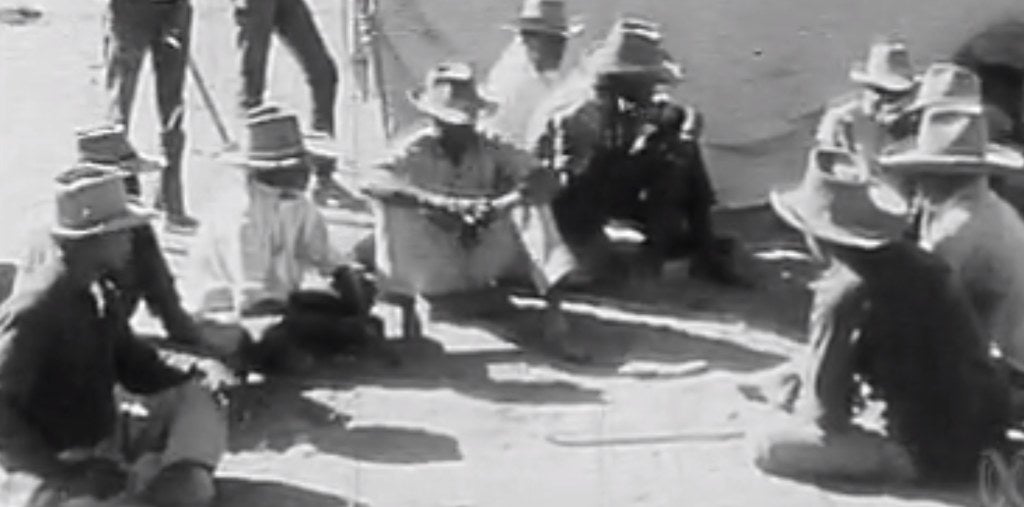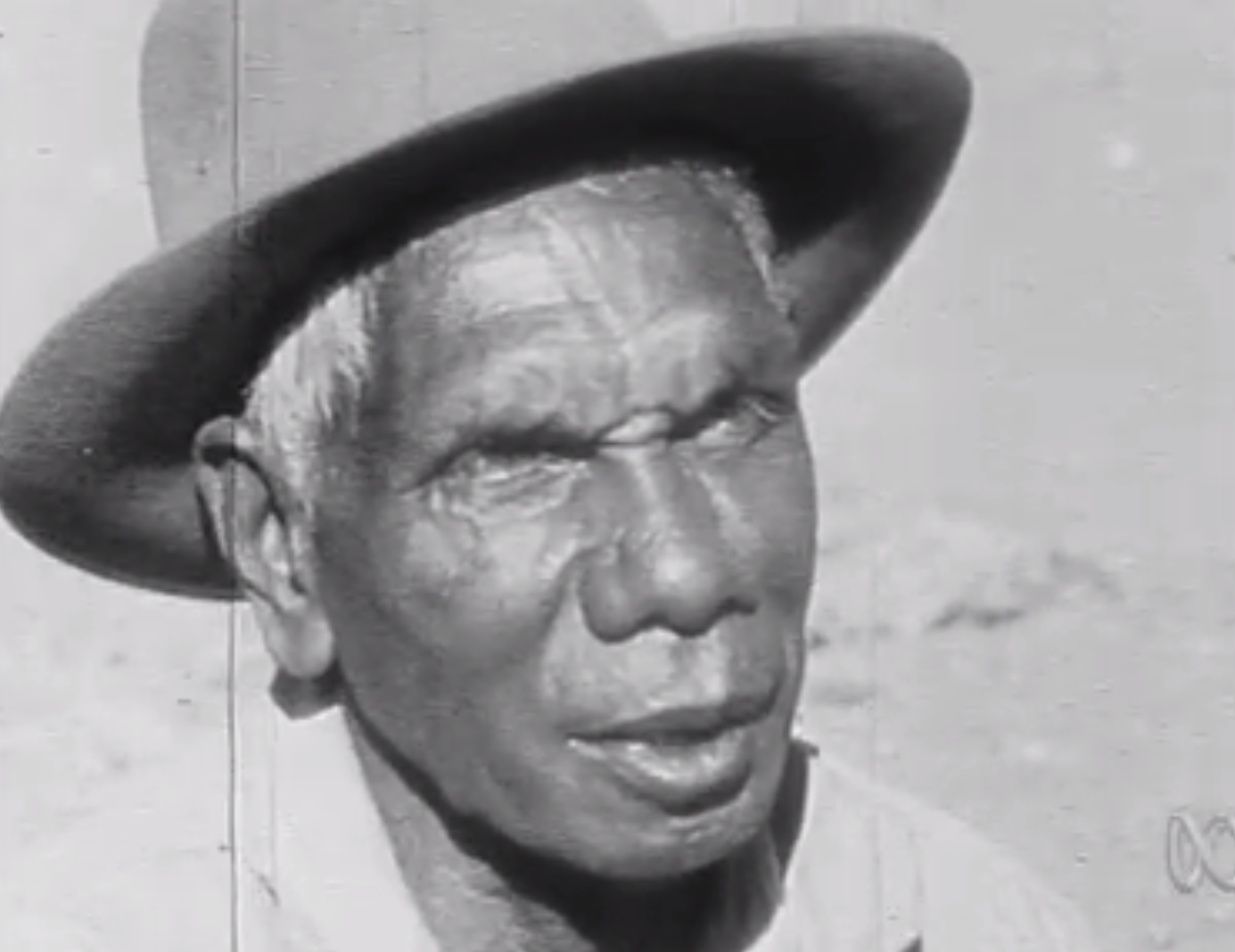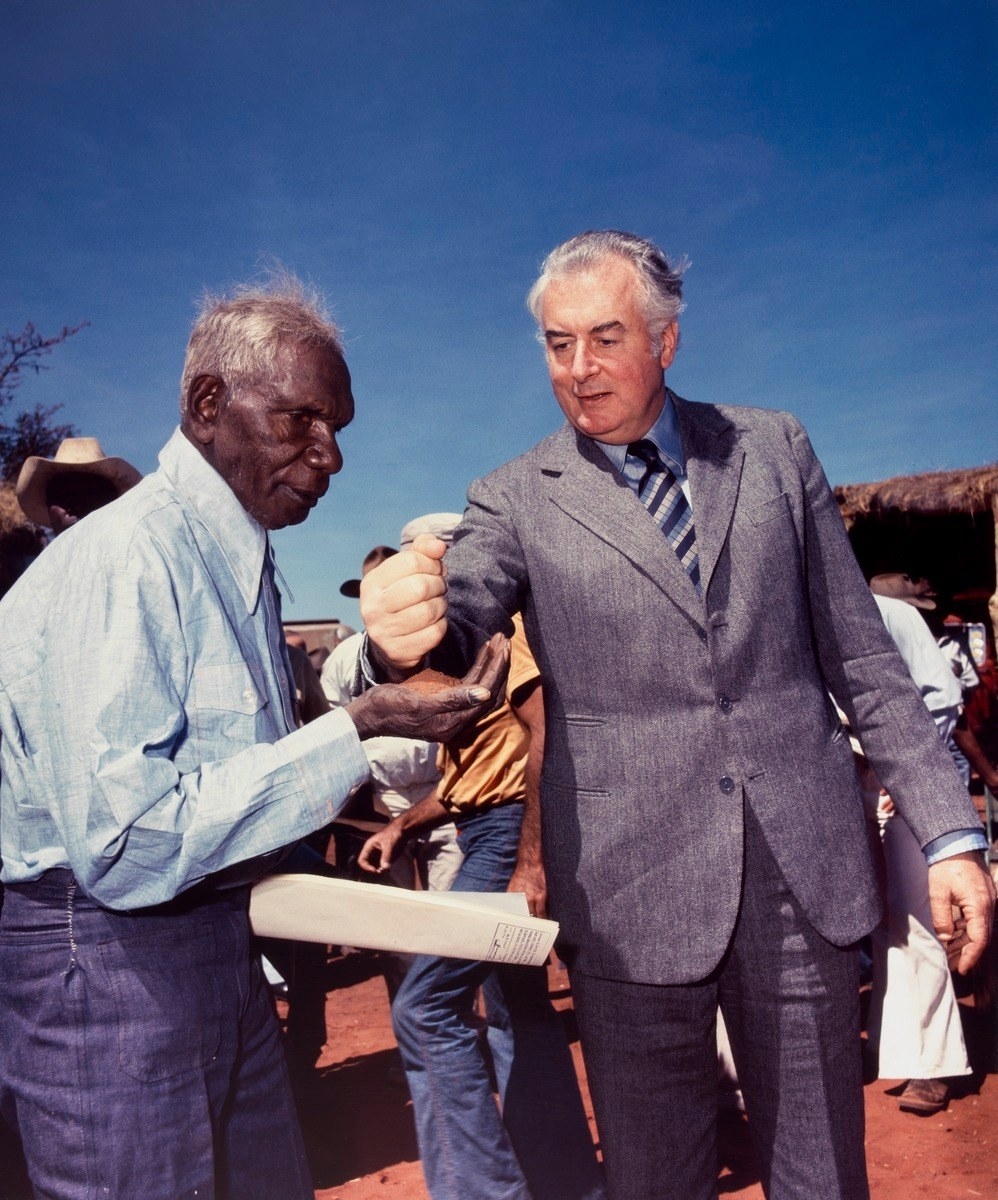Today marks the 50th anniversary of the Wave Hill walk-off, when 200 Aboriginal stockmen and their families walked off Wave Hill Station, 600 kilometres south of Darwin, demanding better working and living conditions.
What started as an industrial dispute would become the first successful Aboriginal land rights claim and a legendary civil rights campaign.

Gurindji Stockmen.
1. The strike
The group was made up of Gurindji people who had been working on the English owned Vestey's Cattle Station at Wave Hill for decades. For more than 40 years Gurindji men worked in conditions tantamount to indentured labour and at the time legislation made it legal for pastoralists to pay black stockmen less than their white counterparts.
In the 1960s, non-indigenous stockmen received a weekly wage of $46 while Aboriginal stockmen were paid $7 a week. The black workers at Vesteys didn't even get that, they were often paid in rations including bread, meat and tobacco for their back-breaking work.
The cattle station was located on traditional Gurindji land, which they'd never ceded their sovereignty over, and on 23 August 1966, they walked off Wave Hill and camped at Wattie Creek, known as Daguragu, and went on strike.
2. The leader

Vincent Lingiari was the head stockman at the Wave Hill station. It was Lingiari, a traditional Gurindji lawman, who led the walk-off and became the public face of the campaign after the Gurindji elected him to be their spokesperson.
Over nine years, Lingiari never wavered in his pursuit for Gurindji land to be handed back and eventually his activism was successful: his people secured the nation's first land rights claim.
In 1976, Lingiari was awarded an Order of Australia medal. He died in 1988 and has been immortalised in songs and artwork, forever synonymous with Aboriginal activism. Lingiari also has a federal electorate named after him.
3. The handback

"Vincent Lingiari, I solemnly hand to you these deeds as proof in Australian law that these lands belong to the Gurindji people, and I put into your hands part of the earth as a sign that this land will be the possession of you and your children forever," then-prime minister Gough Whitlam told Lingiari on 16 August 1975, as he symbolically poured red soil into the hands of the Gurindji man.
It was the end of a nine-year campaign by the Gurindji people to have their land returned to them. The Gurindji were given a lease covering around 3300 square kilometres of traditional land, which included important sacred sites.
4. The legacy

The Wave Hill walk-off wasn't the first time Aboriginal people had engaged in a high-profile political protest. In 1963, the Yolngu people of Arnhem Land had demanded the federal government recognise their sovereignty through the Yirrkala Bark Petitions.
However, it was the length and volume of media attention surrounding the Gurindji walk-off that saw the successful passage of the Aboriginal Land Rights Act in the Northern Territory parliament, which resulted in over half of all NT land being given back to traditional owners.
This was the first legislation allowing Indigenous people to claim land based on connection to country. It would go on to form the cornerstone of the Land Rights Act.
5. The song
The story of Vincent Lingiari and the Wave Hill walk-off was immortalised in the Paul Kelly and Kev Carmody song From Little Things Big Things Grow.

